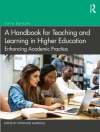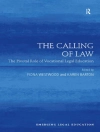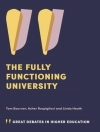Research ethics and integrity are growing in importance as academics face increasing pressure to win grants and publish, and universities promote themselves in the competitive HE market. Research Ethics in the Real World is the first book to highlight the links between research ethics and individual, social, professional, institutional, and political ethics. Drawing on Indigenous and Euro-Western research traditions, Helen Kara considers all stages of the research process, from the formulation of a research question to aftercare for participants, data and findings. She argues that knowledge of both ethical approaches is helpful for researchers working in either paradigm.
Students, academics, and research ethics experts from around the world contribute real-world perspectives on navigating and managing ethics in practice. Research Ethics in the Real World provides guidance for quantitative, qualitative, and mixed-methods researchers from all disciplines about how to act ethically throughout your research work. This book is invaluable in supporting teachers of research ethics to design and deliver effective courses.
Inhoudsopgave
Part one: research ethics in context;
1. Introduction;
2. Indigenous research and ethics;
3. Euro-Western research and ethics;
4. Research ethics regulation;
5. Evaluation research ethics;
Part two: Doing research ethically;
6. Planning research ethically;
7. Ethical context setting and literature review;
8. Ethical data gathering;
9. Ethical data analysis;
10. Ethical reporting;
11. Ethical presentation of research findings;
12. Ethical dissemination;
13. Ethical aftercare;
14. Researcher well-being;
15. Conclusion.
Over de auteur
Helen Kara is a leading independent researcher, author, teacher and speaker specialising in research methods, particularly creative methods, and research ethics. With over twenty years’ experience as an independent researcher Helen now teaches doctoral students and staff at higher education institutions worldwide. She is a prolific academic author with over 25 titles and 2000 citations; notably Creative Research Methods: A Practical Guide and Research and Evaluation for Busy Students and Practitioners, both in their second editions. Besides her regular blogs and videos, she also writes comics and fiction. Helen is an Affiliate at Swansea University, a Visiting Fellow at the Australian National University, and a Fellow of the Academy of Social Sciences. In 2021, at the age of 56, she was diagnosed autistic. Her neurodivergence explains her lifelong fascination with, and ability to focus on, words, language and writing.












